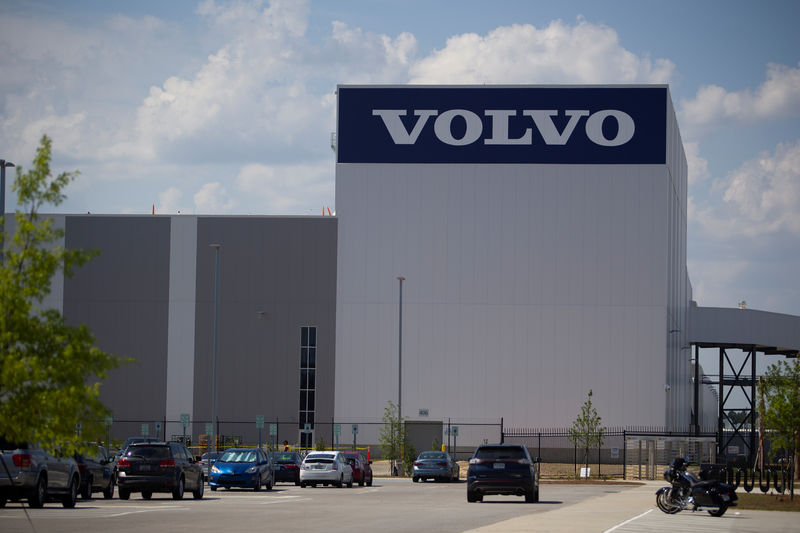Bullish indicating open at $55-$60, IPO prices at $37
Investing.com -- Volvo Car AB (ST:VOLCARb) reported a 12% drop in revenue and a decline in operating income for the first quarter of 2025 amid challenging market conditions.
The Swedish luxury vehicle maker introduced an SEK 18 billion cost and cash action plan aimed at improving operational efficiencies and protecting profitability.
The company posted revenue of SEK 82.9 billion, down from SEK 93.9 billion in Q1 2024, and operating income, excluding joint ventures and associates, was SEK 1.9 billion, a sharp drop from SEK 6.8 billion last year.
Its EBIT margin fell to 2.3%, from 7.2% in the same period last year, while basic earnings per share dropped to SEK 0.40, compared to SEK 1.12 in Q1 2024.
Retail sales fell 6% to 172,219 vehicles, reflecting a 19% drop in wholesale volumes, attributed to a planned inventory reduction and adverse currency effects.
Despite the sales decline, Volvo (OTC:VLVLY) Cars saw an improvement in free cash flow, driven by better working capital management and the sale of its stake in Lynk & Co.
The SEK 18 billion action plan includes SEK 3 billion in variable cost actions, SEK 5 billion in efficiencies related to indirect spending, and SEK 10 billion in additional cash actions to reduce working capital and capital expenditures over the next two years. These measures are expected to have their main effect in 2026.
"The automotive industry is in the middle of a very difficult period with challenges not seen before," said Volvo Cars CEO Håkan Samuelsson.
"While our strategy is clear, we must get better at delivering results. Given the turbulence in the market, we need to further improve our cash flow generation and lower our costs," he added.
Volvo Cars continues to prioritize electrification. In Q1, 19% of sales came from fully electric cars, down from 21% in the previous year. The total share of electrified cars, including plug-in hybrids, rose to 43%, from 41% in Q1 2024.
The company acknowledged ongoing market uncertainty, stating that "2025 will be a challenging year" due to macroeconomic factors, price pressure, and tariffs impacting profitability. As a result, it will not provide financial guidance for 2025 and 2026.
Despite these challenges, Volvo Cars remains focused on its long-term strategy of profitability, electrification, and regionalization. The company is adjusting its operations and product offerings in key markets such as the U.S. and China to better meet regional demands.
